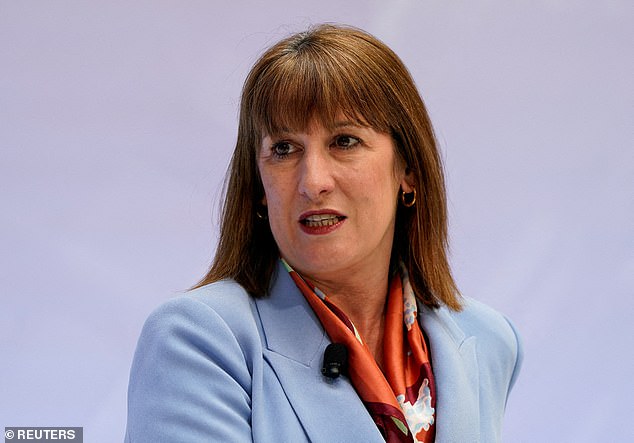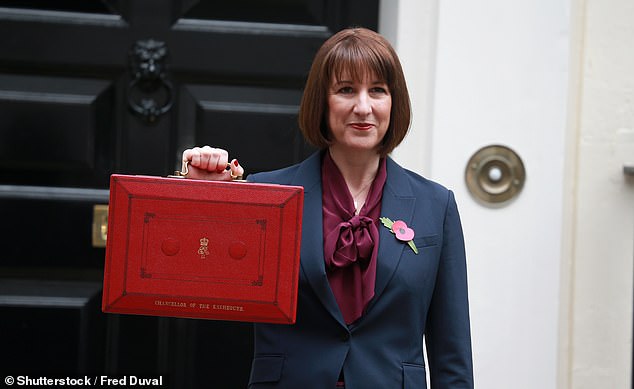Britain ‘cannot afford the array of promises that it has made to the public’, the Budget watchdog warned.
The damning verdict follows U-turns on welfare and winter fuel payments that have blown a hole in Labour’s plans.
The Office for Budget Responsibility (OBR) said yesterday the UK was ‘particularly vulnerable’ compared to countries that had been quicker to get to grips with public finances.
A global trade war, rising defence spending and an ageing population are among ‘daunting’ challenges Britain faces – with ballooning health and welfare bills adding to the pressure.
OBR chairman Richard Hughes said: ‘The UK finances are in an unsustainable position in the long run. The UK cannot afford the array of promises it has made to the public.’
Mr Hughes explained that politicians needed to understand ‘choices and trade-offs’ that must be made.
So far, however, the burden has fallen chiefly on families and businesses who are set to see the tax burden climb to a 38 per cent of GDP in the next few years – the highest level since the Second World War.
Despite that, Britain’s debt currently stands at around 100 per cent of the size of the economy.

Britain ‘cannot afford the array of promises that it has made to the public’, the Budget watchdog warned

The Office for Budget Responsibility (OBR) said yesterday the UK was ‘particularly vulnerable’ compared to countries that had been quicker to get to grips with public finances
And Mr Hughes went on to say that ‘if you leave the public finances on autopilot’ it will rise to 270 per cent by the 2070s.
He added: ‘The UK has never had debt of that level in its recent past and so it is a trajectory it can’t sustain.’
Already, Britain must pay the third highest borrowing rates of any advanced economy – after New Zealand and Iceland – and that could worsen as investors worry about its outlook, the OBR warned.
It also has the third highest annual borrowing level – and fourth highest debt among advanced European economies. Mr Hughes said: ‘That leaves us in a particularly vulnerable position.
‘Other countries have been quicker at consolidating public finances, getting them back to a more resilient position in the wake of the same shocks we’ve faced over the last five years.’
As OBR officials set out the findings, UK 30-year borrowing costs climbed to the highest level since May while rates on ten-year government debt spiked close to those seen last week when Chancellor Rachel Reeves’ tears in the House of Commons alarmed markets.
Labour’s humiliating climbdown over its attempt to reduce the welfare bill last week has added to the pressure.
Britain’s outlook could be even bleaker if the dismal pace of productivity growth – getting more done per worker – fails to pick up. Just 0.1 percentage point shaved off the OBR’s productivity outlook will wipe out the Chancellor’s £9.9billion ‘headroom’ against meeting her Budget rules.
Meanwhile, the state’s bill for net zero is expected to hit £800billion-plus between now and 2050 largely due to motorists going electric, reducing fuel duties paid to the Treasury.
The OBR’s annual fiscal risks report said the UK emerged from a series of reverses, including Covid and the energy crisis, in a ‘relatively vulnerable’ position. Efforts to balance the books met only ‘limited and temporary success’.
The report went on: ‘Planned tax rises have been reversed, and, more significantly, planned spending reductions have been abandoned.
‘The result has been a substantial erosion of the UK’s capacity to respond to future shocks and growing pressures on the public finances.’
A Treasury spokesman said: ‘We recognise the economic realities the OBR sets out. This is why we are committed to ensuring stability in the economy through our non-negotiable fiscal rules which have allowed us to invest in the UK to drive a decade of renewal and put more money in people’s pockets.’












